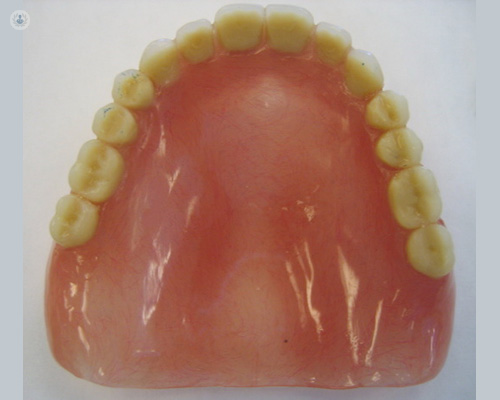


What are dentures?
Dentures (also known as dental prostheses or false teeth) are prosthetic devices designed to replace missing teeth. They consist of artificial teeth, usually made of acrylic, nylon, metal or porcelain. There are two types of dentures:
- Removable dentures – conventional false teeth can be removed at night or for cleaning. They provide protection to the remaining teeth, gums and bone. They require special care and daily cleaning to avoid hygiene problems.
- Fixed partial dentures – crowns, bridges, and veneers can be fixed onto the remaining teeth or dental implants.
Why are dentures used?
Teeth can suffer damage in a number of ways, including decay due to poor hygiene, trauma, and malnutrition. If teeth are lost, damaged, or need to be removed, this can affect the patient’s ability to chew or speak. Dentures can help to solve these problems, restoring a full set of teeth, with all the aesthetic and practical advantages that come with them.
What do dentures consist of?
Dentures consist of artificial teeth with a support to hold them in place. With fixed dental prostheses, surgery may be required to insert implants to support the prosthesis. The operation is quick and is performed under local anaesthesia.
Preparation for dental prosthetics
It is important to have regular check-ups with a dentist, especially if experiencing tooth pain or other oral problems. If dentures are necessary, the dentist will recommend the best options for each patient.
Care after the intervention
After dental implant surgery, the patient should be monitored with regular check-ups with their dentist and good hygiene must be maintained to avoid problems like infection or further damage to the remaining teeth and gums. If the patient is in pain after the intervention, pain medication may be recommended.
